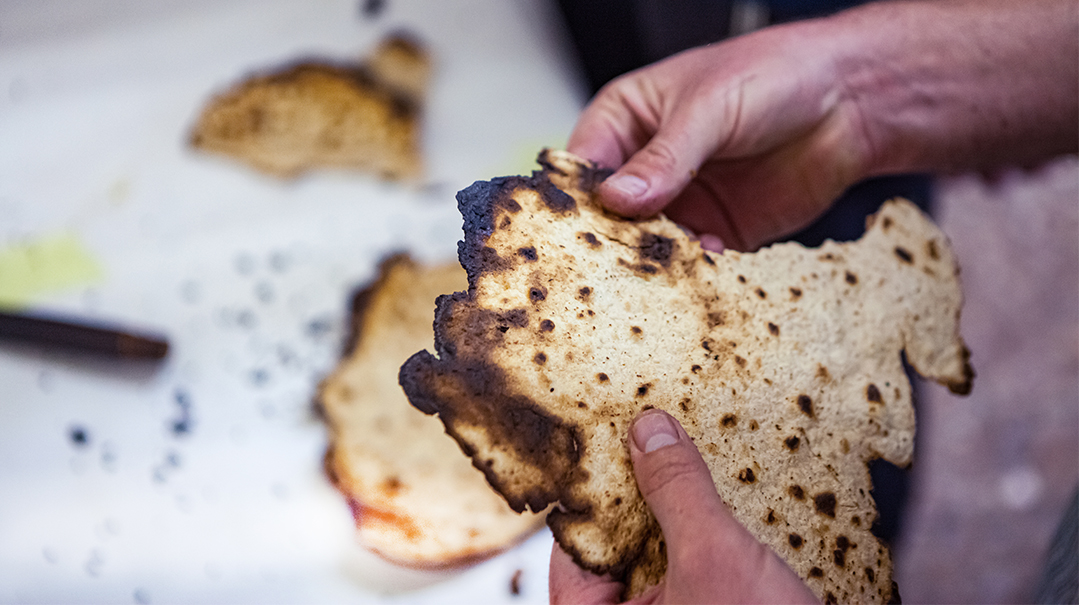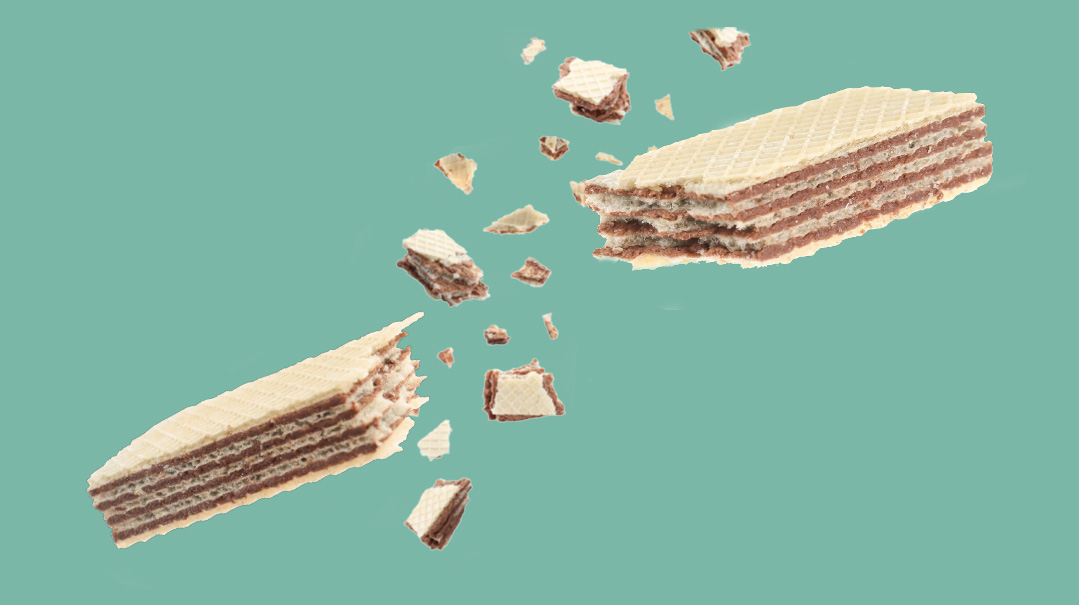Hope Reborn

Here in Budapest we found relative safety, but our lives hung on the thread of maintaining our gentile facade

As told to Rayzel Reich by her grandmother, Mrs. Jenia Reich
Hunger devours us from the inside out, shriveling our intestines. Cold brutalizes our weak bones, attacking us like the Russians swarming into the city.
Russians are better than Germans and Hungarian Nazis, aren’t they? This is what we’ve been dreaming of for so long, waiting and waiting for the Russians to come. But they vent their fury on resistant Nazi Budapest by preventing any food or coal from entering the city.
The windows have blown out from the aerial bombing.
It is January.
We cover the windows with bedsheets and nail them down. The sheets billow as the wind screams. We wear all we can and huddle together for warmth. We cannot cook the meager food we have, for there is no fire.
There are nine of us squeezed into one small room. Mammu, my nine-year-old brother Leibish, and me. Mr. Saphir, who has lost his daughter Etta to a bomb as she ran to deliver food to others. Little Marik, my second cousin whom we had taken in our escape. The three Lederberger siblings we’ve become close to during this terrible war. Yes, we are terribly crowded, but Mammu did not want her children to be alone, lost in the confusion of our assumed identities and suppressed Jewishness.
We women share one bed. We wake up covered in bedbugs bites, and there’s little we can do to find respite.
Marya Opatovska. That is my name now, the gentile identity I have hung onto for so long. In the past six years we have fled so many towns, crossed so many borders, faced death so many times. Here in Budapest we found relative safety, but our lives hung on the thread of maintaining our gentile facade.
Our apartment building swarms with Hungarian Nazis; we even share our tiny kitchen with one. We felt the danger of discovery squeezing us at every movement, and were vigilant, so vigilant, at all times. Mammu cooked on Shabbos, so our neighbor would see the steam. On the outside, we were good Catholics who walked out, as if going to church, in our Sunday best each week. Inside our tiny dwelling, we were secretly Jews, secure in that knowledge together. When the Lederberger boys put on tefillin for a moment, we knew we were Jews. When Etta would whisper Jewish stories and songs to me, I knew who I was.
Now, finally, liberation is here, and slowly, slowly, we can cautiously shed our false exterior. We can be Jews again, without fearing for our lives. But liberation comes with a price: siege, starvation, and bitter, bitter cold.
We have survived so much until now. Surely we shall not succumb when the end is so near! We must be resourceful. Somehow, somewhere, we find axes, crowbars, tools of destruction. We young people scavenge the city for anything wooden, chopping it into pieces and hauling it home in a small cart. I, a 13-year-old girl, and young Leibish, chop down and split young trees with my ax. The green wood is wet, but it is fuel. It burns in the stove, providing enough heat to keep us alive, and to cook whatever meager portions of split peas Mammu manages to obtain.
We walk through the bombed-out streets of once-beautiful Budapest. The Russian soldiers looted wildly when they entered the city, robbing whatever valuables they could find. Citizens found vandalizing would be reported to the Russians. But we are desperate, and we must do what we can, so we search everywhere for wood.
One day we come upon an empty store, its interior relatively unscathed. The walls are covered in beautiful wood paneling, a sad remnant of former splendor. We look at the wood and see fire, warmth, food. This is a treasure, and we must take it.
We send Leibish to the corner of the street on the right, and Marik to the corner on the left. “If a car comes by, wave them away.” It’s a long shot, but in these days of chaos and anarchy, anything may work. Perhaps they would believe that the street is bombed out and impassable.
Once the boys are in position, we go into the silent shop. I swing my ax, the Lederberger boys use their crowbars. We chop and chop, pry and yank, filling the cart with glossy varnished chunks. Food for our pot-bellied stove, warmth to sustain us.
The wood lasts us for a while, and we can breathe.
We locate a glazier. We give him a large bribe, and he comes and fits glass panels into our windows. At last the flapping sheets are silent, the wind is barred. The small warmth from the stove cannot escape, and I feel almost human again.
Pesach is coming.
“What are we going to do?” Mammu asks. Finally we can celebrate openly. But there’s barely any food. “I have no potatoes, no flour, nothing Pesachdig… How will I make Pesach?”
We will travel to one of the outlying villages, Mammu decides, where we have heard there is food. We must try, for Pesach.
We go to the train station. All is chaos.
There is a freight train stopped in the station. We’re told it will soon leave in the direction we wish to travel. We climb aboard and stand in a car. We wait for hours and hours. We have to run out to relieve ourselves, then return and wait some more. The train does not move.
“This isn’t going to work,” Mammu says. “We must stay in the city and find another way.”
Hunger squeezes the city.
The rabbanim in Budapest give heterim to eat things we normally wouldn’t, such as rice and other kitniyos.
We try as hard as we can to get whatever fruits and vegetables we can buy or barter. Somehow, someone bakes matzos, and distributes a precious few so other Jews can have a Seder, will be able to say those precious words, al achilas matzah. We have a few matzos. We are free Jews this year. We will have a Seder.
We make our Seder, crowded together in our small room, surrounded by Hungarian Nazis, with little matzah and little food, and yet, we are kings and queens. In the middle of the Seder the air raid siren wails; the American Air Force is bombing Budapest to soften up the resistance. We run down to the basement shelter with all the non-Jews in the building, squeezing together until the all-clear siren sounds. Then we go up and finish our Seder, kings and queens still.
There is so much fear, so much uncertainty, so little of anything to hold onto except each other.
But we have our G-d, and long ago, He chose us to be His own. On this night, we have something more precious than wine and meat and fine clothes; we have our identities, and we have hope — hope that at this very moment He is preparing us for a great freedom, to become a glorious People once more.
(Originally featured in Family First, Issue 736)
Oops! We could not locate your form.













